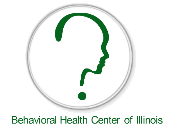





Couples Therapy
What is couples therapy?
Marriage counseling, also called couples therapy, helps couples — married or not — understand and resolve conflicts and improve their relationship. Marriage counseling gives couples the tools to communicate better, negotiate differences, problem solve and even argue in a healthier way.
As a couple drifts apart, they may realize they want different things in life, one or more of the partners may be unfaithful, or they may feel stuck with no way out of the rut. Before seeking marriage counseling, one or more of the partners must identify that the marriage is in trouble and they must decide together that they want to attempt to repair their broken relationship. There are numerous benefits to marriage and family counseling, from improved communication among family members to resolving deep-rooted emotional hurt.
The decision to seek marriage counseling is an important first step for a couple. When a couple can admit that their marriage is in trouble, they can also realize that they may need outside help from a third-party.
Who can benefit from couples therapy?
Most marriages and other relationships aren't perfect. Each person brings his or her own ideas, values, opinions and personal history into a relationship, and they don't always match their partner's. Those differences don't necessarily mean your relationship is bound for conflict. To the contrary, differences can be complementary — you know the saying about opposites attracting. These differences can also help people understand, respect and accept opposing views and cultures. But relationships can be tested. Differences or habits that you once found endearing may grate on your nerves after time together. Sometimes specific issues, such as an extramarital affair or loss of sexual attraction, trigger problems in a relationship. Other times, there's a gradual disintegration of communication and caring.
No matter the cause, distress in a relationship can create undue stress, tension, sadness, worry, fear and other problems. You may hope your relationship troubles just go away on their own. But left to fester, a bad relationship may only worsen and eventually lead to physical or psychological problems, such as depression. A bad relationship can also create problems on the job and affect other family members or even friendships as people feel compelled to take sides.
Here are typical issues that marriage counseling can help you and a spouse or partner cope with:
- Infidelity
- Divorce
- Substance abuse
- Physical or mental conditions
- Same-sex relationship issues
- Cultural clashes
- Finances
- Unemployment
- Blended families
- Communication problems
- Sexual difficulties
- Conflicts about child rearing
- Infertility
- Anger
- Changing roles, such as retirement
How does couples therapy work?
Marriage counseling can help you learn skills to solidify your relationship. These skills may include communicating openly, problem solving together and discussing differences rationally. In some cases, such as mental illness or substance abuse, your marriage counselor may work with your other health care professionals to provide a complete spectrum of treatment.
Talking about your problems with a marriage counselor may not be easy. Sessions may pass in silence as you and your partner seethe over perceived wrongs. Or you may bring your fights with you, yelling and arguing during sessions. Both are OK. Your therapist can act as mediator or referee and help you cope with the emotions and turmoil. Your marriage counselor shouldn't take sides in these disputes.
What if your partner refuses to attend marriage counseling sessions? You can go by yourself. It may be more challenging to patch up relationships when only one partner is willing to go to therapy. But you can still benefit by learning more about your reactions and behavior in the relationship.
| Couples Therapy |
| Depression |
| Anxiety |
| Grief and Loss |
| PTSD |